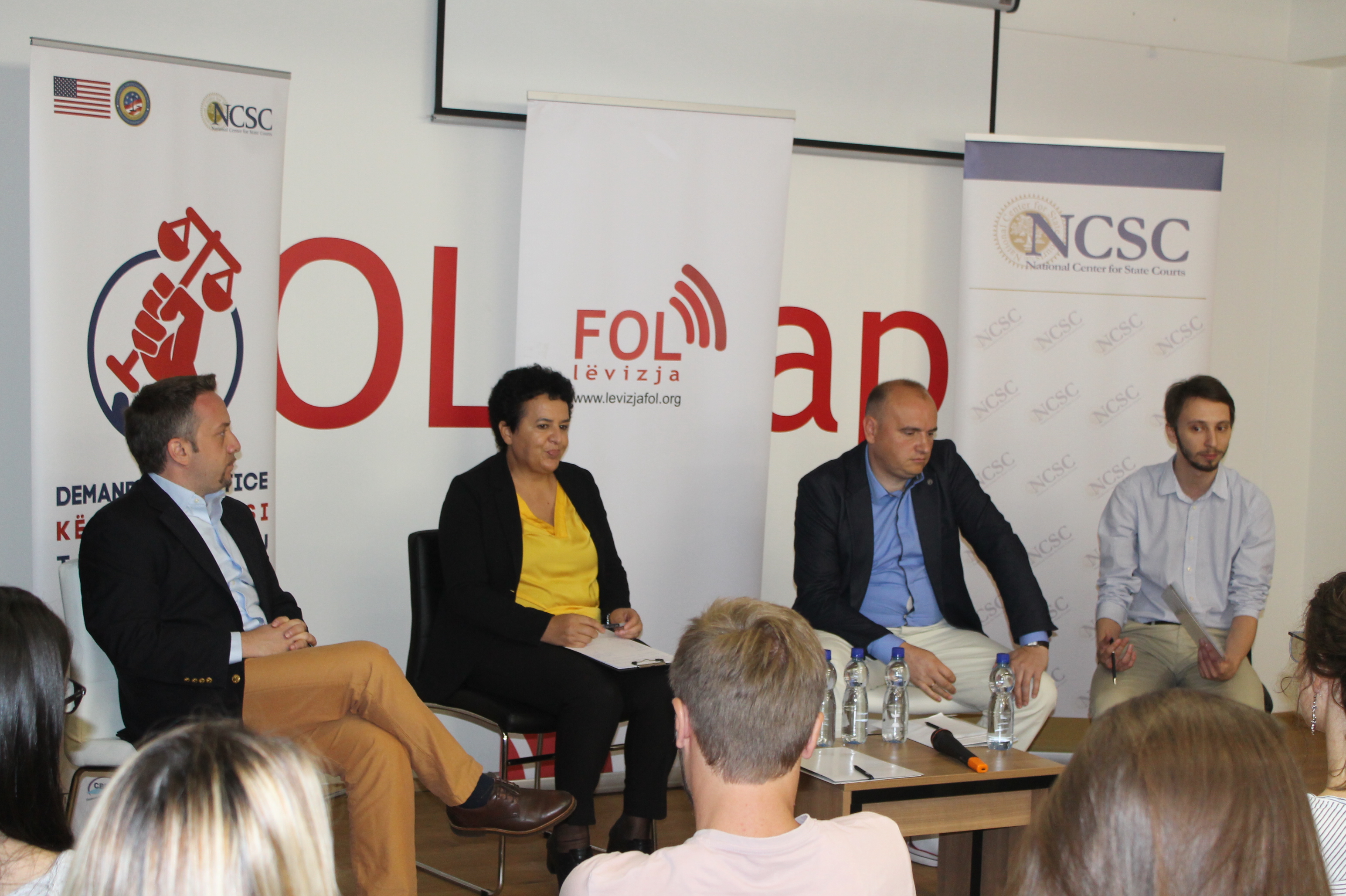Discussion on the transparency of the judiciary
Prishtina, 7 september 2017 – Lëvizja FOL, through the “Seeking for Justice” program, held today a meeting with judicial actors to discuss transparency in the judicial system in Kosovo. The panel composed of Dastid Pallaska, Lawyer, Aferdita Bytyçi, President of the Basic Court in Prishtina, and Armend Hamiti, Prosecutor at the Basic Prosecution in Prishtina, where discussed and shared their views on the transparency in the judicial system.
Gersi Gashi, from Lëvizja FOL, opened the discussion with two essential issues: the publication of judgments and the publication of reasons for non-attendance of court hearings. z. Gashi emphasized that the publication of the judgments serves to the benefit of the citizens as well as the judiciary as an institution. The publication of judgments, among other things, enhances legal certainty, encourages judges to argue cases in the best, helps increase citizen confidence in the judiciary and helps students to better understand the system by studying concrete cases.
The President of the Basic Court in Prishtina, Aferdita Bytyci stressed out that although transparency remains a priority of the court, and this can be seen from the number of published judgments, it is very important to understand that there is a huge lack of resources in the courts. She added that the efficiency of the courts, especially that one of Pristina, is increasing and as a result, more cases have been solved than they were received in court.
One of the reasons for the distrust of citizens in the courts and the prosecutor’s office is the non-publication of their work and the failure to inform the public on time. Lack of transparency by the courts themselves enables citizens to be informed only of other sources. Therefore, it is important that courts continue with the publication of court decisions, work on publishing all decisions (including those that are not final) and start publishing the reasons for not holding the hearings. “Increasing transparency in the work of the courts will have an impact on increasing citizen trust in the courts,” Gashi added.
Dastid Pallaska, in the role of a lawyer, strongly supports the publication of court decisions first by anonymizing personal data, for reasons of non-violation of the presumption of innocence. “There is an even deeper issue when it comes to transparency. Non-professional reasoning of decisions and lack of transparency in them. Because there are times when the lawyer’s argument is not mentioned at all in the court decision, “Pallaska sead.
Pallaska also sead that as a solution should not be a continuous complaint for a lack of judges, because according to him this can be easily covered by increasing the number of professional associates and legal assistants for judges.
This would be a multifunctional strategy for reducing the number of old cases, professional preparation of future judges and would also affect transparency.
Finally, all panelists were of the opinion that the publication of judgments should be made, and that the courts should inform the citizens of their work.
